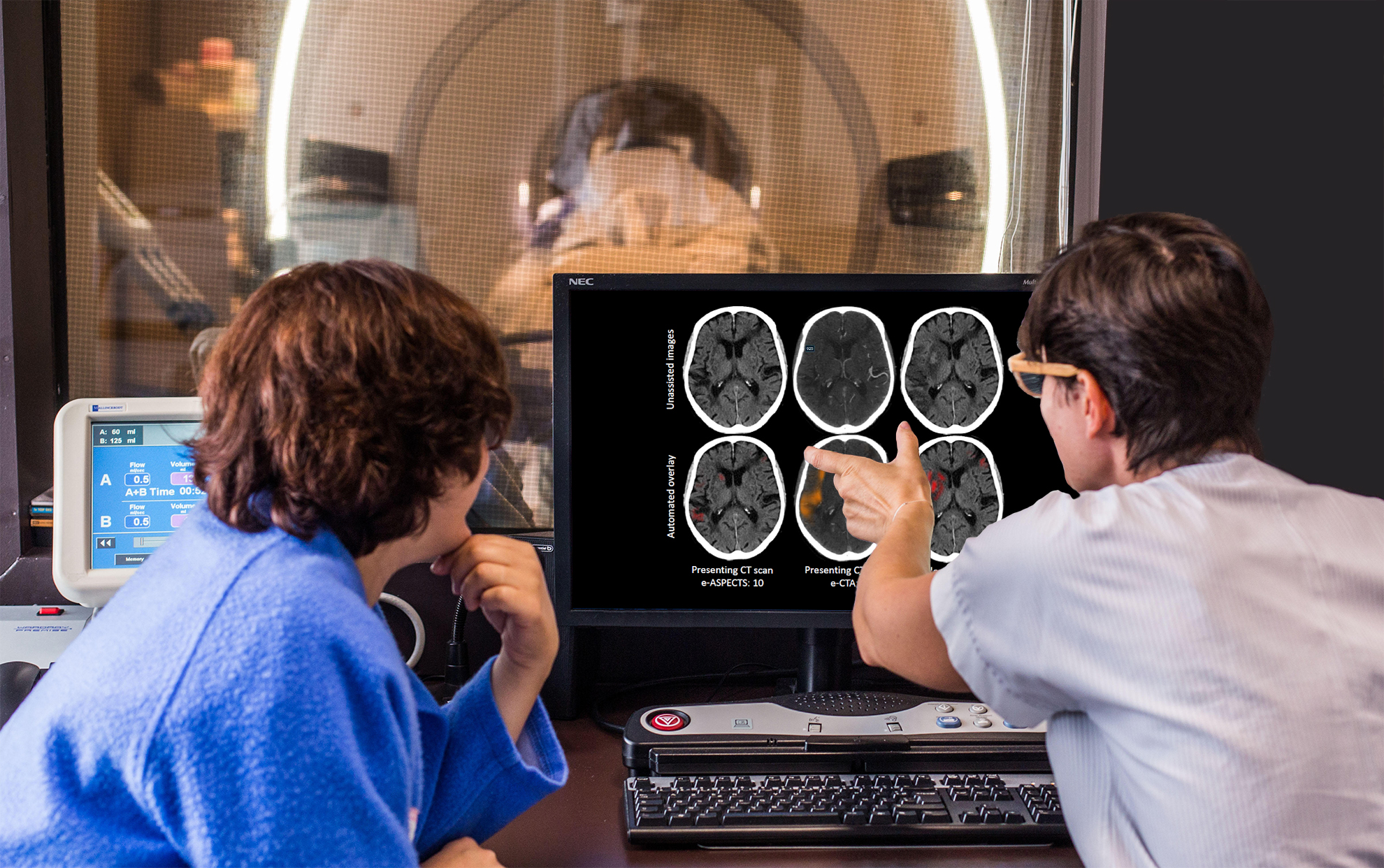
New study shows Brainomix e-CTA® provides similar measures to experts and improves inter-rater reliability.
e-CTA®, developed by Brainomix, provides fast, consistent collateral assessments powered by AI and Deep Learning, based on CTA analysis. The recently published CATS study showed that e-CTA® provides a real-time and fully automated approach to collateral scoring, with the potential to improve consistency of image interpretation.
The study demonstrated the high sensitivity and specificity of e-CTA®, independent of clinician input. This is very important especially when selecting ischemic stroke patients presenting symptoms beyond 6 hours or with an uncertain time of onset, as reflected in the recent European Stroke Organisation guidelines for mechanical thrombectomy. Expert neuroradiology input is rarely available in real-time at most hospitals around the world, especially at primary stroke centres from which patients need to be transferred to a comprehensive centre. Even when specialist neuroradiology opinion is readily available, e-CTA ®offers the opportunity to improve inter-rater reliability, therefore helping select the right patients that can benefit the most from mechanical thrombectomy.
Dr George Harston, Brainomix Chief Medical and Innovation Officer & Consultant Stroke Physician, Oxford University Hospitals NHSFT stated: “The importance of good collateral blood flow for patient outcome in acute stroke treatment is well recognised. However, even expert collateral scores commonly suffer from inter-rater error. In this exciting study Brainomix has shown once again the value of AI to augment human performance. In this study, e-CTA improved consistency between neuroradiologists when used as a decision support tool. Even when used as a standalone tool e-CTA produced similar scores compared to experts, opening up the opportunity for reliable collateral assessment for all patients regardless of which hospital they attend.”
The results of this study have been published here












